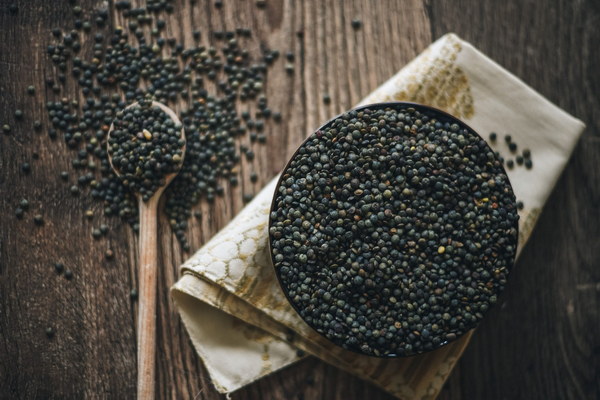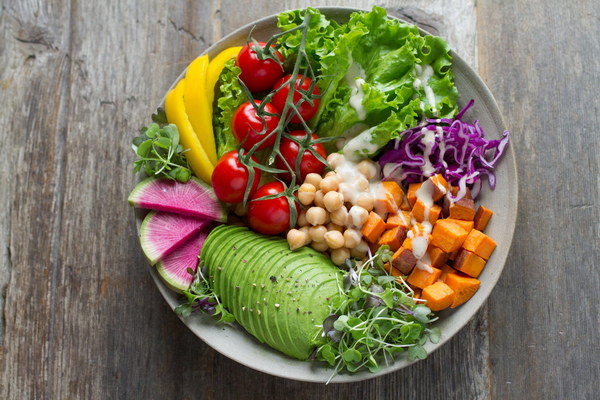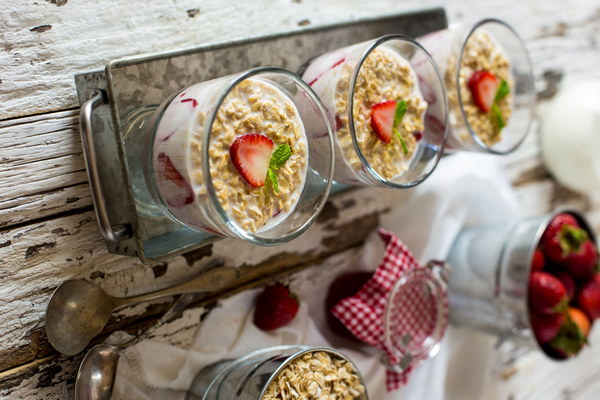Unlocking Hormonal Harmony Discover the Secrets of Menopause Diet Recipes
Introduction:
Menopause, a natural phase in a woman's life, brings along a myriad of challenges. Hormonal fluctuations can lead to various symptoms such as hot flashes, mood swings, and sleep disturbances. While medication may provide temporary relief, natural remedies like diet can also play a significant role in managing these symptoms. In this article, we will explore the secrets of menopause diet recipes that can help women navigate through this transformative period with ease.
1. The Power of Phytoestrogens:
Phytoestrogens are plant-based compounds that mimic the effects of estrogen in the body. Incorporating foods rich in phytoestrogens into your diet can help balance hormone levels and alleviate menopausal symptoms. Some of the best sources of phytoestrogens include:
- Flaxseeds: Ground flaxseeds are an excellent source of lignans, which are a type of phytoestrogen. Sprinkle them over salads, yogurt, or smoothies for a healthy boost.
- Soy products: Tofu, tempeh, and edamame are great sources of isoflavones, a type of phytoestrogen. Enjoy them in stir-fries, soups, or salads.
- Lentils and chickpeas: These legumes are not only rich in fiber but also contain phytoestrogens. Add them to stews, curries, or salads for a nutritious meal.
2. Calcium and Vitamin D for Strong Bones:
Menopause increases the risk of osteoporosis, as estrogen plays a crucial role in maintaining bone density. Including calcium-rich foods in your diet can help prevent bone loss. Some excellent sources of calcium include:
- Dairy products: Milk, cheese, and yogurt are all great sources of calcium. Opt for low-fat or plant-based options if you prefer.
- Leafy greens: Broccoli, kale, and spinach are rich in calcium and can be added to salads, smoothies, or stir-fries.
- Fortified foods: Breakfast cereals, orange juice, and soy milk are often fortified with calcium, making them another convenient option.
Vitamin D is essential for calcium absorption, so it's important to get enough of this nutrient as well. Spend time outdoors, consume fatty fish like salmon, or consider a vitamin D supplement to meet your daily requirements.
3. Omega-3 Fatty Acids for Mental Health:
Omega-3 fatty acids have been shown to improve mood and reduce the risk of depression during menopause. Incorporate these healthy fats into your diet with the following foods:
- Fish: Salmon, sardines, and mackerel are rich in omega-3 fatty acids. Aim to consume fatty fish at least twice a week.
- Flaxseeds and chia seeds: These seeds contain alpha-linolenic acid (ALA), which is converted into omega-3 fatty acids in the body. Sprinkle them over your meals or add them to smoothies.
- Nuts and seeds: Walnuts, almonds, and sunflower seeds are great sources of omega-3 fatty acids. Enjoy them as a snack or add them to salads and stir-fries.
4. Antioxidant-Rich Foods for Energy and Vitality:
As women go through menopause, they often experience a decline in energy levels. Consuming antioxidant-rich foods can help combat oxidative stress and boost energy. Some options to consider include:
- Berries: Blueberries, strawberries, and raspberries are packed with antioxidants and can be enjoyed fresh, frozen, or in smoothies.
- Dark chocolate: A small piece of dark chocolate can provide a mood-boosting effect due to its high content of antioxidants and magnesium.

- Green tea: This herbal beverage is rich in antioxidants and can help improve sleep quality and reduce stress levels.
Conclusion:
Navigating through menopause can be challenging, but a well-balanced diet can make a significant difference. By incorporating phytoestrogen-rich foods, calcium and vitamin D for bone health, omega-3 fatty acids for mental well-being, and antioxidant-rich foods for energy, women can support their bodies during this transformative period. Remember, it's always best to consult with a healthcare professional before making any significant changes to your diet.









